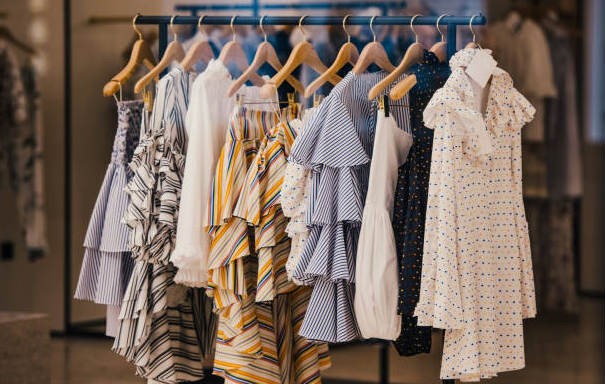Women’s Clothing: A Journey By way of Type, Culture, and Empowerment
Women’s Clothing: A Journey By way of Type, Culture, and Empowerment
Blog Article
Clothing for women has been an effective symbol of cultural identity, and advancement. From prehistoric times to the modern fashion runways, the evolution of women's attire has a fascinating story to tell of the changing society norms, advancements in technology and individual freedom. It was initially a collection of clothes that were designed to be modest and functional has transformed into a diverse industry that celebrates the individuality of each woman and their creativity. The fashion of women's clothes is more than just a necessity, it's also an artform and a tool for empowerment, allowing women to define how they present themselves in the eyes of others. The diversity and value of women's fashion create a powerful force that transcends generations and cultures.
The history of women's clothing is a direct reflection of social change and cultural values. Clothing in ancient times typically reflected status. It was adorned with exquisite designs and rare materials that were reserved for the royal or high-end. In time, as society evolved and women's clothing changed and roles, changing according to new norms and requirements. The Victorian period was a time of modesty, with extravagant gowns. The 1920s ' flapper dresses represented freedom and rebel. Each era brought unique styles which reflected the ideals and struggles of the time. Modern fashion continues this tradition, blending historical influences and modern trends in an amalgamation of the past with the present, reflecting the complexity of the lives of women today.
Cultural diversity plays an important influence on women's clothes which adds variety and depth to the fashion scene worldwide. The traditional attire, like saris in India, hanboks in Korea, and kimonos in Japan, celebrates the rich history and art of different regions. The clothes often showcase exquisite craftsmanship, vivid colours, and symbols with a strong cultural value. Traditional clothing is an important part of most communities, the modernization of fashion has effortlessly merged heritage and modern styles. This has led to a new wave of fashion that respects tradition and embraces global trends, allowing women to celebrate their roots while staying fashionable.
Sustainability has emerged as an important aspect of the fashion industry pavine clothing store as environmental concerns drive change the way clothing is created manufactured, consumed, and produced. The fast fashion model, which prioritizes cheap, disposable clothes, has been criticized due to its social and environmental impact. In response, many women are opting for alternative options that are sustainable, including eco-friendly fabrics, second-hand shopping as well as upcycled fashions. Fashion companies are also adopting ethical practices, ensuring fair labor conditions and reducing waste. This move towards sustainability is not just beneficial to the environment, but it also empowers women to make choices in line with their ideals, creating a meaningful connection between fashion and responsibility. To gather added information please visit official site
The empowerment of women through clothes has been a constant theme throughout history. Fashion is often an instrument for redefining social standards and changing the roles of women. For instance, the adoption of trousers by women during the first half of the 20th century represented a call for gender equality and freedom. Today, the popularity of fashions that are body-positive and the inclusion of sizing for women of all shapes and sizes to feel respected and confident. The fashion industry has transformed into a platform for expression, allowing women to show their true self and celebrate diversity. express their identities and values.
The clothing of women is an evolving and vital element of history, culture as well as the expression of oneself. It's a way through which women have navigated social changes, celebrated their culture, and affirmed their individuality. From traditional garments that honor traditional roots, to the latest eco-friendly fashions that reflect our commitment to the environment, women's clothing continues to change with the changing expectations and roles of women. With the fashion industry embracing innovation, inclusivity, and ethical practices, it reaffirms the long-standing connection between the fashion industry and female empowerment. Ultimately, women's clothing is more than just fabric--it is a vibrant and enduring representation of the diversity as well as the resilience and creativeness of women from all over all over the globe.